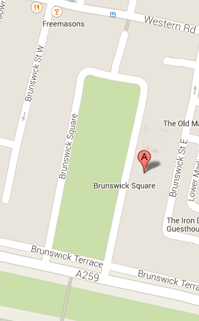7th October 1830
‘Tis Thursday and the day my Eliza brings the cheese, so I bid her take more of my words down, for I have something to say. At this Eliza smiles and murmurs ‘When have you not, dear Aunt?’ and though I bridle and snap ‘Saucy wench!’ I laugh too, for this was what I always thought of my own mother, Eliza’s Granddam. Never at a loss was she and I dare say is sitting this very minute at St. Peter’s side and advising him how best to keep his gates, or judge sinner from saint.
And ‘tis of women I have something to say and this is a thought as has been plaguing me right through my bottling and pickling and stirring of my puddings all through this busy month. (‘Tis October now, when I must put up the plum puddings for Yuletide and preserve the last of the summer fruits and prepare my minced sweetmeats for the seasonal pies.)
Last month, when I wrote my journal, those upstairs were all in a fine ferment till finally Mistress sends for one of her old gossips (the gentry, Eliza tells me, do not refer in these times to their women friends as their ‘gossips’. But what else does a woman seek out another woman for if not to talk and share her mind, and comfort and advise; whether in castle or cottage?) And right glad was everyone, I must say, for the maids tell me that the blessed woman did go on from morning to night with her megrims and her wailing and her ringing of the bell.
Yet once her dearest friend arrived all was well, and they did talk and hide behind their fans and giggle like a pair of young misses.
Yet why, thinks I, should a married woman yet have need of her friend when she is troubled? Her man has but lately come home from one of his long sojourns across the high seas – yet I know that when my George did come back from a trip to the fair at Weyhill I would not have wanted to spend my days instead in the arms of any of my gossips – nor my nights neither! (Here Eliza blushes but I tell her not to be so daft. ‘Tis the way of things. As she would know if she were a married woman instead of single still at the age of 18!)
Now ‘tis commonly held by those in the shops and the farms and the places which serve the gentry that they be different to the likes of us. Most say that this is why they do birth lying on their backs and with a male midwife or even a barber-surgeon in attendance. (And why so many of the babies die, thinks I, though Eliza says that modern medicine is advanced beyond the scope of women to understand.)
But any person who has been in Service will cry nonsense to this reasoning (I do not cry ‘nonsense’ but another of the words which Eliza tells me is not a writing-down word!) and laundry maids will grin at the thought, while upstairs staff tell tales constantly of the carryings-on and scurrying around which happens in grand houses once the candles have been lit.
Why this should be exercises me constantly, for in this they do, indeed differ. Any good-wife who would raise her skirts to a man not her husband would be labelled whore in our world – while with the gentry it do seem as to try another’s husband, or to instruct one’s own husband to lie with whores (it is whispered this is what Mistress enjoins Master to do on a nightly basis) is how things are done. Never to knows the joys, with one’s own man of...(But here Eliza dashes down her pen and refuses to write more. Yet I feel another Determination coming upon me: I have bid her say that I shall learn to write myself and shall make ALL my words Writing-Down words. No-one shall say me nay!)


